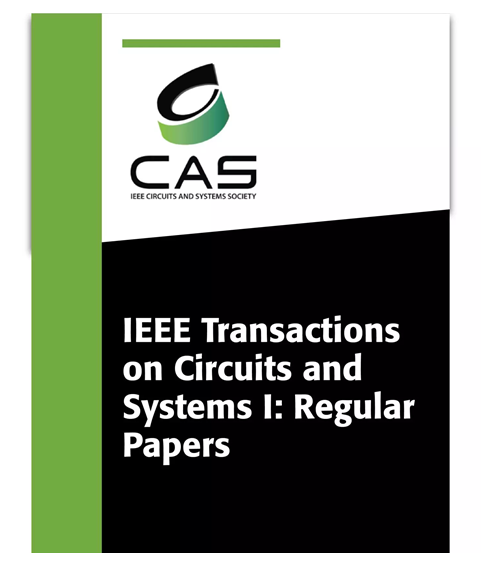Kolmogorov-Arnold Networks-Based Calibration for Single-Channel ADCs: High-Precision Nonlinear Code Synthesis With Low Power Consumption
IF 5.2
1区 工程技术
Q1 ENGINEERING, ELECTRICAL & ELECTRONIC
IEEE Transactions on Circuits and Systems I: Regular Papers
Pub Date : 2025-04-14
DOI:10.1109/TCSI.2025.3555253
引用次数: 0
Abstract
This paper presents a novel calibration scheme for single-channel SAR, pipelined and pipelined-SAR ADCs using Kolmogorov-Arnold networks (KANs). In the proposed scheme, a multi-sample KAN (MS-KAN) is designed to realize nonlinear code synthesis (NLCS), achieving effective calibration for general nonlinear errors. The MS-KAN-based calibrator can be converted into an analytical expression, making the calibration process transparent, with stronger interpretability, predictability and reliability compared to previous neural network-based calibration algorithms, and assisting in the analysis of ADC nonidealities. Meanwhile, the proposed scheme achieves high calibration performance with low hardware overhead. The proposed scheme also requires much fewer training samples, thereby reducing the effort required for both chip testing and network training. The MS-KAN-based calibrator is verified with two silicon-proven ADCs, a 14-bit 1.3 GS/s pipelined ADC and a 10-bit 700MS/s SAR ADC. Measurement results show that SFDR is improved by 11.5 dB to 30.9 dB after calibration. The quantized calibrators are implemented on both FPGA and 28nm CMOS technology, where a piecewise polynomial (PWP) method is adopted to simplify the implementation of the calibrator. The post-layout simulation results show that the calibrator for the real-time calibration of the pipelined ADC consumes only 6.32 mW, while the calibrator for the SAR ADC consumes 2.42 mW.基于Kolmogorov-Arnold网络的单通道adc校准:低功耗高精度非线性码合成
本文提出了一种利用Kolmogorov-Arnold网络(KANs)标定单通道SAR、流水线和流水线SAR adc的新方案。在该方案中,设计了一个多样本KAN (MS-KAN)来实现非线性编码合成(NLCS),实现了对一般非线性误差的有效标定。基于ms - kan的校准器可以转换为分析表达式,使校准过程透明,与之前基于神经网络的校准算法相比,具有更强的可解释性、可预测性和可靠性,并有助于分析ADC非理想性。同时,该方案以较低的硬件开销实现了较高的标定性能。该方案所需的训练样本也更少,从而减少了芯片测试和网络训练所需的工作量。基于ms - kan的校准器通过两个经过硅验证的ADC进行验证,一个14位1.3 GS/s流水线ADC和一个10位700MS/s SAR ADC。测量结果表明,校正后SFDR提高11.5 dB至30.9 dB。量化校准器在FPGA和28nm CMOS技术上实现,其中采用分段多项式(PWP)方法简化了校准器的实现。布局后仿真结果表明,用于流水线ADC实时校准的校准器功耗仅为6.32 mW,而用于SAR ADC的校准器功耗为2.42 mW。
本文章由计算机程序翻译,如有差异,请以英文原文为准。
求助全文
约1分钟内获得全文
求助全文
来源期刊
CiteScore
9.80
自引率
11.80%
发文量
441
审稿时长
2 months
期刊介绍:
TCAS I publishes regular papers in the field specified by the theory, analysis, design, and practical implementations of circuits, and the application of circuit techniques to systems and to signal processing. Included is the whole spectrum from basic scientific theory to industrial applications. The field of interest covered includes: - Circuits: Analog, Digital and Mixed Signal Circuits and Systems - Nonlinear Circuits and Systems, Integrated Sensors, MEMS and Systems on Chip, Nanoscale Circuits and Systems, Optoelectronic - Circuits and Systems, Power Electronics and Systems - Software for Analog-and-Logic Circuits and Systems - Control aspects of Circuits and Systems.

 求助内容:
求助内容: 应助结果提醒方式:
应助结果提醒方式:


